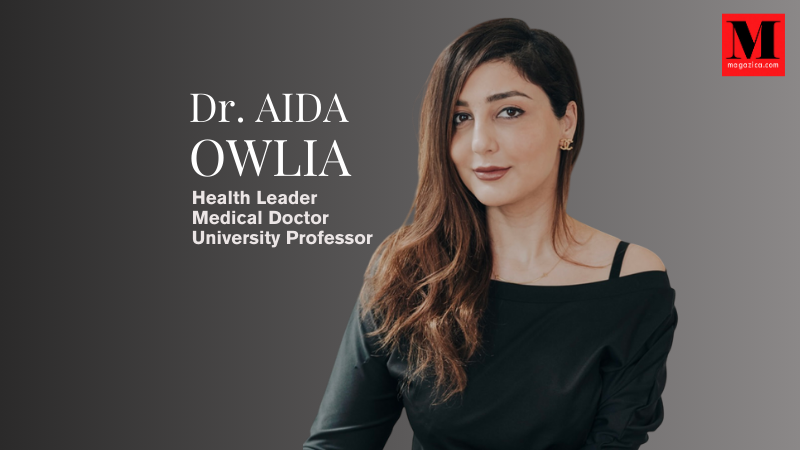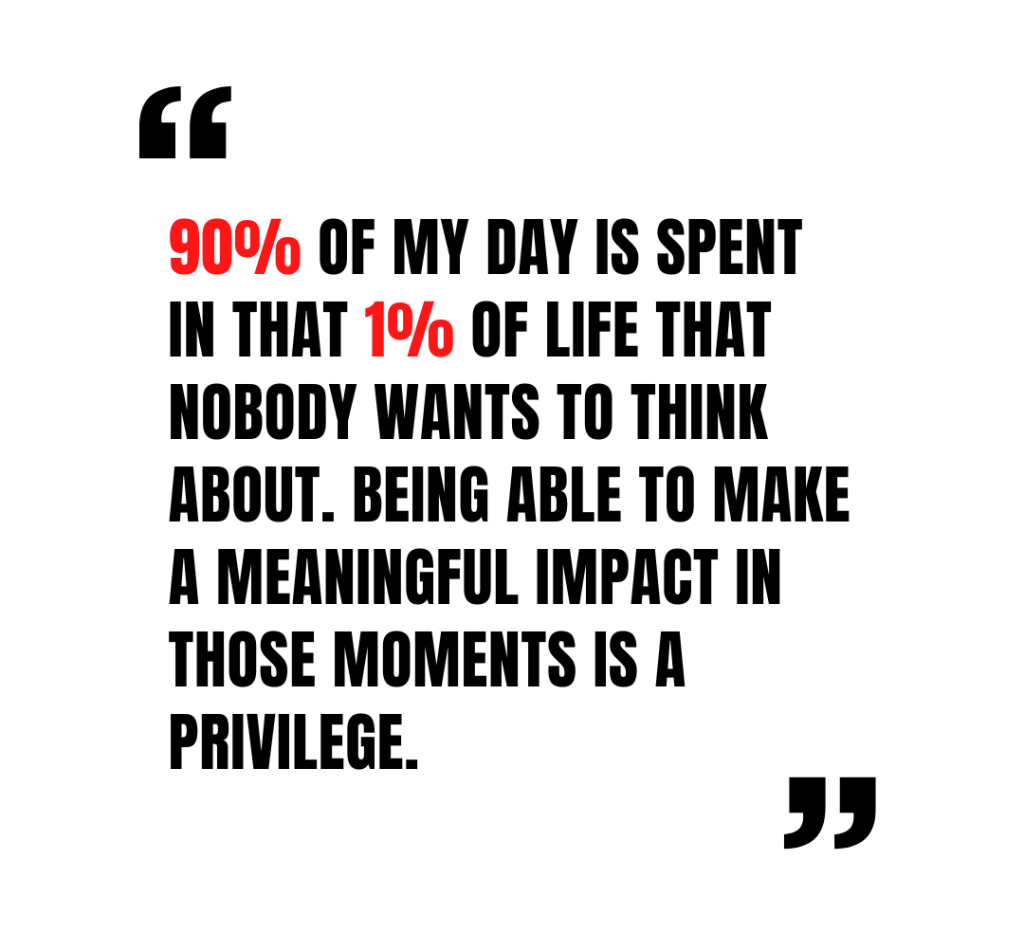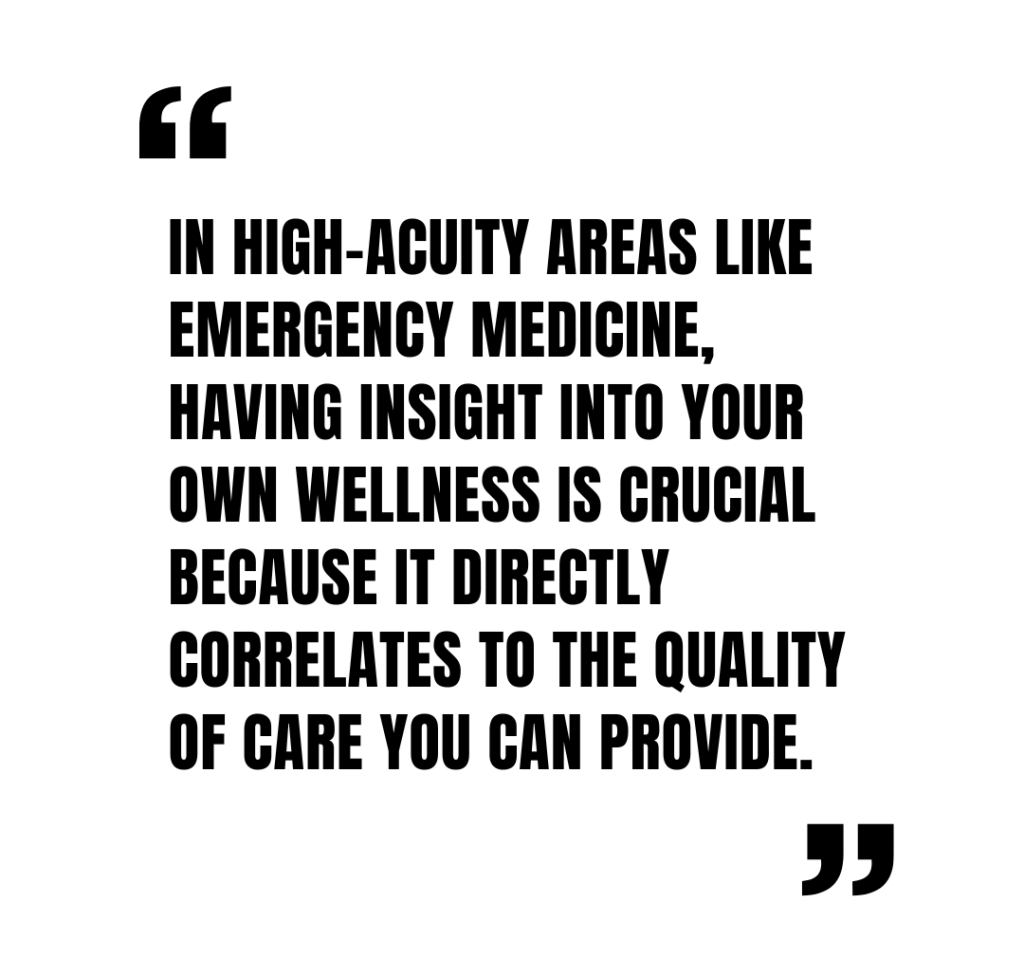Emergency Medicine Meets Aesthetics: Dr. Aida Owlia visions beyond the Scalpel about Leadership, Wellbeing, and Lifelong Learning
- Home
- Emergency Medicine Meets Aesthetics: Dr. Aida Owlia visions beyond the Scalpel about Leadership, Wellbeing, and Lifelong Learning

Emergency Medicine Meets Aesthetics: Dr. Aida Owlia visions beyond the Scalpel about Leadership, Wellbeing, and Lifelong Learning
Imagine a life where seconds determine outcomes. Dr. Aida Owlia, a Canadian-trained physician, navigates this reality daily, balancing the high-stakes world of emergency medicine with her passion for cosmetic injectables. In this interview, she shares her unique journey, revealing how these seemingly disparate fields complement each other, fostering resilience and a multifaceted approach to patient care. Discover her insights on leadership, the importance of continuous learning, and the strategies she employs to maintain well-being in a demanding profession. Dr. Owlia’s story is a testament to the power of human connection and the transformative potential of medicine.
Magazica: Dear readers and viewers, we are thrilled to have Dr. Aida Owlia with us today. A Canadian-trained physician with a passion for emergency medicine, critical care, and cosmetic injectables. Dr. Owlia is dedicated to achieving natural results and prioritizing safety in her practice, with a strong emphasis on high-quality education, leadership, and physician wellness. She brings a unique blend of scientific rigor and artistic vision to her work. Let’s dive into her journey and get some very useful insights she has to offer to all of us.
Magazica: Dr. Owlia, welcome.
Dr. Aida Owlia: Thank you so much for having me. What a lovely introduction!
Magazica: Thank you very much. First of all, let’s start with your journey. Then we’ll go to the scientific journey. Can you share your journey into medicine and exactly what inspired you to specialize in emergency medicine and critical care?
Dr. Aida Owlia: Absolutely. For me, it was a very personal decision driven by a deep emotion of feeling helpless and hopeless during an emergency involving a family member a long time ago. I remember feeling like I couldn’t do anything despite all my desire to help. I vowed to myself that I would never feel that way again, nor would I want anyone else to go through it.
For me, medicine was a way to be effective when every second and minute matters in an emergency. That’s why I dedicated my life to educating myself in this profession. I was fortunate enough to complete my degree, and I’ve been working as an emergency physician for about six years now.
Magazica: Wow! That truly demonstrates the saying that truth becomes reality with experience.
Dr. Aida Owlia: Absolutely. Emergency medicine is a stressful profession. I find you have to be driven by something very strong within you to guide you through the challenges and give you resilience. For me, that drive comes from a very personal experience.
Magazica: Resilience—what an excellent word! It’s powerful, and we believe in it too. Given the stress of your work, how do you balance the high-pressure environment of emergency medicine with your passion for cosmetic injectables?
Dr. Aida Owlia: The two worlds are quite complementary. Emergency medicine is extremely fast paced, involving life-and-death decisions in seconds. Often, you must synthesize complex information with limited time and resources.
Cosmetic medicine, on the other hand, allows for a more paced environment. You can dedicate significant time to consultations, understanding your patients’ goals, and creating individualized plans. It fosters long-term relationships with patients—you might see them at 30, 50, and 70, sharing their life stories along the way.
In the emergency department, you act quickly without that luxury. The two fields balance each other out, each with unique demands. Together, they add longevity and perspective to my professional life.

Magazica: That’s fascinating! At first glance, they might seem like opposite worlds, but your explanation shows how complementary they are. What are the most rewarding aspects of your work in emergency medicine, despite the stress, and how does it compare to your experiences with cosmetic procedures?
Dr. Aida Owlia: Absolutely. Both emergency medicine and cosmetic procedures are very hands-on and outcome oriented. While they might seem like opposites, they share surprising similarities.
In the emergency department, one of the most rewarding aspects is seeing the immediate results of your actions. For example, if someone’s blood pressure is dangerously low, you administer medication or perform a procedure, and you can observe the positive change in real-time—on the monitor, in the patient’s condition, and in the relief of their loved ones.
These moments are incredibly gratifying, especially since we often encounter people on the worst days of their lives. I always say, 90% of my day is spent in that 1% of life that nobody wants to think about. Being able to make a meaningful impact in those moments is a privilege.
Working in this environment also instills a deep respect for life and safety, which directly translates into my cosmetic practice. In aesthetic medicine, where safety is equally paramount, this background makes me a more cautious and thoughtful practitioner. Both fields enhance each other in unique ways.
Magazica: Yes, and you explained it beautifully. My next question was about safety, and you’ve already addressed that! Let’s shift gears a bit. Emergency medicine is fast-paced, and you frequently encounter novel situations. How do you stay updated with the latest advancements in both emergency medicine and cosmetic injectables?
Dr. Aida Owlia: That’s an excellent question. Staying updated requires significant dedication, as both fields are constantly evolving. I use a multimodal approach. I dedicate time to independent reading, whether after or before my shifts, and I also attend courses and seminars to address gaps I’ve identified in my knowledge.
I also engage in hands-on training, simulation sessions, and collaborative learning opportunities. For instance, in cosmetic medicine, calcium-based fillers and bio-simulators are becoming more popular. To manage complications, I look to other disciplines, such as urology, for insights into how they handle calcium-based kidney stones and look for inspirations and research in other fields in hopes to open doors to innovative solutions.
Magazica: Fascinating! You work in such a high-stress environment, and yet you’re also a lifelong student, constantly updating your knowledge. What strategies do you use to maintain your own well-being, and how do you support your colleagues in this regard?
Dr. Aida Owlia: Teamwork is essential. In high-acuity areas like emergency medicine, having insight into your own wellness is crucial because it directly correlates to the quality of care you can provide.
I often remind myself of something we learned in medical school: when cabin pressure changes in an airplane, you must put on your own oxygen mask before helping others. If you don’t take care of yourself, you won’t be able to help others effectively—and you may even become someone who needs help.
To maintain resilience, you need to find activities that bring you joy and balance. For some, it might be art, reading, spending time with loved ones, or even pursuing a second, less acute career. It’s also important to recognize burnout and seek help when needed.
Finally, we’re fortunate that the conversation around physician burnout has gained traction, and resources are becoming more accessible. Sharing experiences with colleagues who understand your challenges can make a significant difference. Creating a safe haven for health care workers that fosters wellness, rest and reflection is a step in the right direction.
Magazica: That’s such a valuable perspective. It reminds me of a conversation I had with an airline crew member who mentioned feeling safer knowing a doctor was onboard. Your presence in emergencies—whether on flights or elsewhere—must bring immense relief to those around you.
Dr. Aida Owlia: Absolutely. In fact, I’ve been on two flights in the past year where they called for a physician. The relief in the eyes of the crew and passengers when they realized I was an emergency physician was unforgettable. Moments like these remind me why I love my job. Whether it’s on a plane or in the ER, being able to stand up and say, “I know what to do,” is incredibly fulfilling.
Magazica: That’s remarkable. Given your vast experience with people of all ages and backgrounds, how do you approach patient education in cosmetic procedures, particularly in setting realistic expectations?
Dr. Aida Owlia: Patient education is all about transparency. It’s vital to discuss both the risks and benefits openly, even if those conversations are difficult.
In cosmetic medicine, for example, fillers can cause complications like tissue death if not done correctly or diagnosed quickly. I make sure my patients understand these risks and how we would address them in an emergency.
This kind of informed consent empowers patients. Many of my clients have told me, “I’ve been getting fillers for years, and no one ever explained this to me.” That knowledge prepares them and ensures they’re active participants in their treatment plans. It helps the patients identify issues early and facilitate us to diagnose and treat them in a timely manner.
Similarly, in emergency medicine, education is key. While time constraints often limit these discussions, it’s important to involve patients and their families in the decision-making process whenever possible. Transparency builds trust and ensures everyone is aligned on the goals of care.
Magazica: The way you emphasize difficult yet honest conversations is inspiring. That ties into leadership. How does leadership play a role in your career, and how do you cultivate these skills among your peers?
Dr. Aida Owlia: Leadership is essential, especially in emergency medicine, where we work as part of a team. The emergency physician often leads in managing traumas and critical cases. Decisions must be made quickly, and tasks need to be delegated effectively.
One of my mentors once said, “If you try to do everything yourself during a critical case, you’re doing a disservice.” Delegating tasks to the right team members allows for better outcomes. Leadership isn’t about control; it’s about collaboration and trusting your team.
On a larger scale, leadership involves innovation and adapting to the changing needs of healthcare. At my hospital, we emphasize evidence-based care and strive to incorporate the latest research into practice. This ensures that we’re not only delivering high-quality care but also addressing the needs of a growing and aging population.

Magazica: That’s such an insightful take on leadership. Evidence-based practices resonate with me, as they’re crucial in both healthcare and HR. Lastly, what are your future goals, and how do you plan to continue making a positive impact in your field?
Dr. Aida Owlia: I’m fortunate to have a career that combines my passions for emergency medicine, critical care, and aesthetic medicine. In the future, I see myself continuing in all three fields while expanding my role in leadership and education.
I currently teach across multiple cities and universities, which I deeply enjoy. My goal is to promote ethical practice, resilience, and high-quality care among the next generation of physicians and injectors.
Personally, I want to continue growing as an academic and practitioner. There’s so much more to learn, and I hope to make an impact on an international scale, particularly in education.
Magazica: Those are inspiring goals! This conversation has been engaging, relatable, and insightful. Dear readers, I hope you’ve gained valuable insights from Dr. Owlia’s journey, her emphasis on patient education, and her dedication to both medicine and leadership. Thank you, Dr. Owlia, for sharing your wisdom and motivation with us.
Dr. Aida Owlia: Thank you so much for having me.
Magazica: Thank you, Dr. Owlia. It’s been a pleasure to have you with us today. Your insights are truly invaluable. As we wrap up, is there anything else you’d like to share with our readers, particularly those interested in pursuing a career in emergency medicine or cosmetic injectables?
Dr. Aida Owlia: I would say to anyone pursuing a career in these fields, or any demanding profession for that matter, it’s important to stay grounded in your purpose. Remember why you started and the passion that drove you to this work.
Also, don’t forget to take care of yourself. It’s easy to get consumed by the demands of the job, but the most effective professionals are those who also prioritize their wellness and resilience.
Lastly, don’t be afraid to embrace the learning process. Medicine is constantly evolving, and there’s always something new to discover. Stay curious, stay compassionate, and always be open to growing—not just as a practitioner, but as a person.
Magazica: That’s wonderful advice. We thank you again for joining us today. Your dedication to both your patients and your own personal growth is truly inspiring.
Dr. Aida Owlia: Thank you so much for having me. It’s been a pleasure.
Magazica: And to our readers, we hope you’ve enjoyed this insightful conversation. We’ve learned a lot about the intersection of emergency medicine and aesthetic practices, the importance of leadership and wellness, and the incredible value of patient education. Stay tuned for more inspiring stories and valuable insights in future editions.
- Share
Dr. Aida Owlia
Dr. Aida Owlia is an emergency physician. She holds academic appointment at University of Toronto and Queen’s University. She is also an advance aesthetic practitioner and highly sought after educator in the field of aesthetic medicine who is passionate about medical aesthetics with focus on natural results and advocating for improving standards of safety in cosmetic injectables.
